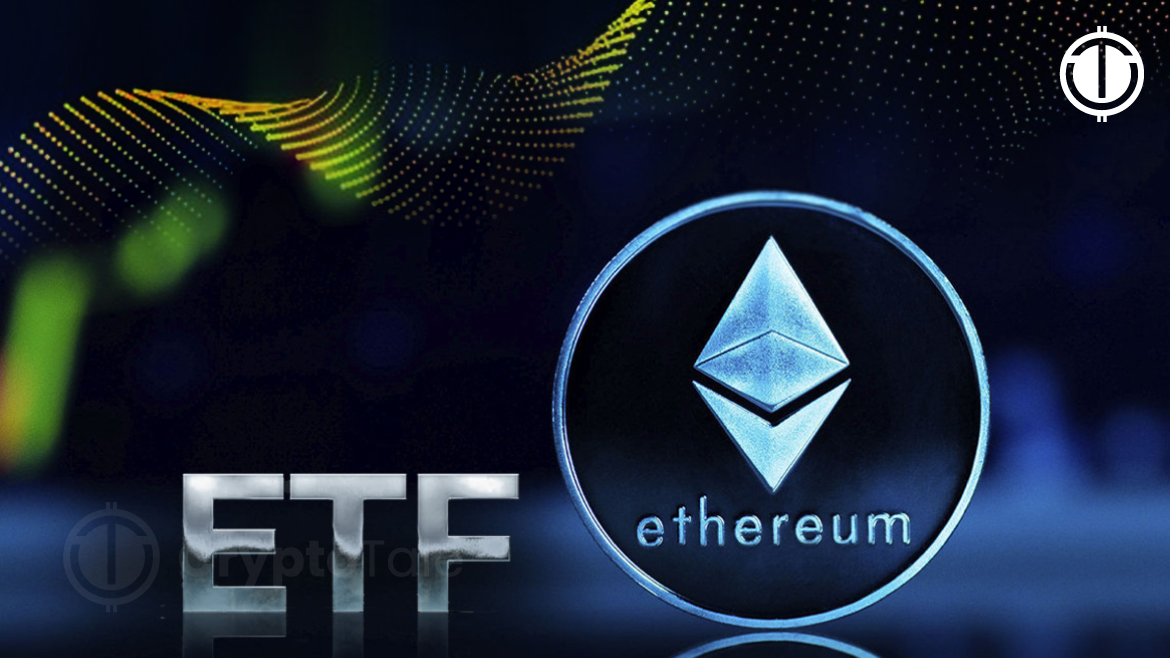
Ethereum is a decentralized blockchain platform that can be used to create decentralized applications and smart contracts. It is designed in a way that makes transactions secure, programmable, scalable, and decentralized. It is best known for its native cryptocurrency called Ether (ETH). Ethereum is one of the most widely used blockchain platforms, and in terms of market capitalization and influence, it is second only to Bitcoin.
What Are Crypto ETFs?
Crypto ETFs(exchange-traded funds) are a new trend in the financial industry. Unlike cryptocurrencies that require a variety of processes to buy and the need to manage crypto wallets and keys, ETFs make it easier for traditional investors and even people who are new to crypto to buy shares of cryptocurrencies.
Advantages of Crypto ETFs:
- Unlike buying a cryptocurrency, which requires investors to set up a crypto wallet and trade through unregulated cryptocurrency exchanges, Crypto ETFs can be bought and sold through a brokerage account.
- Crypto ETFs can only be traded through mainstream regulated exchanges. This gives confidence to investors, knowing that all transactions are monitored, preventing illegal activities.
- When using cryptocurrencies, wallet keys are essential. Without the key, investors won’t be able to gain access to their wallets, which store thousands or even millions of dollars worth of cryptocurrency. This won’t be a problem in ETFs because it will be stored in a brokerage account.
- There are stories of investors who lost their wallet keys and are unable to access thousands or even millions of dollars worth of cryptocurrency. But you don’t have to worry about this issue in ETF, as there is no risk of losing your wallet key. Because all the ETFs will be stored in your brokerage account.
Disadvantages of Crypto ETFs:
- The changes in the price of cryptocurrency will not always be exactly reflected in the price of ETFs.
- For trading ETFs, investors have to pay management fees and transaction fees, which can be over 2% a year. In the long run, profits will be eaten as part of these fees.
- Crypto ETFs can’t be used to make payments, unlike cryptocurrencies that can be used like fiat currency.
What Is an Ethereum ETF?
Ethereum ETF is an exchange-traded fund that aims to keep track of the price movements of the second-largest cryptocurrency, Ethereum. Like any other ETF, Ethereum ETF will allow traditional investors to benefit from the growth of Ethereum without the need to buy or store the cryptocurrency.
Ethereum ETF is like a fund holding a portfolio of assets that imitates the ETH market price performance. The assets include a mix of financial instruments like future contacts, crypto derivatives, and others to track ETH’s value’s market trend. The value of Ethereum ETFs lies in providing a familiar environment to traditional investors and those who may be considering investing in crypto but are extremely cautious. By purchasing shares through the conventional stock market exchange, investors can get benefits in the likelihood of an Ethereum (ETH) price increase while at the same time limiting the risks involved in owning crypto coins.
When it comes to financial regulations, Ethereum ETF complies with all of them. It provides extra safety to investors and boosts investors’ confidence, especially for those who are entering the crypto world for the first time. It also eliminates the need for investors to manage complex private keys. All in all, the Ethereum ETF allows investors to participate in crypto indirectly.
Pros And Cons of Ethereum ETF:
Like all products, Ethereum ETFs have their own pros and cons. Before stepping into ETFs, research into market conditions is essential for making informed decisions.
Pros:
- Bridges the gap between the traditional and crypto sectors, thereby allowing traditional investors to get more exposure to crypto.
- Increasing investor confidence as it operates under the established financial guidelines.
- Reduces the risk involved as it permits trading on established financial markets.
- Provides diversification to your portfolio.
Cons:
- You are more susceptible to the issuer’s credit risk and lowers your liquidity of digital assets.
- ETF parent ETH is more volatile to market dynamics than traditional assets.
- Investor’s profits can be eroded over time due to the higher expense ratio of the management.
- Investors will not have much control over their investments as investments are made according to the fund manager’s choices.
Ethereum ETFs VS Bitcoin ETFs:
Ethereum ETFs track the price of ETH, while Bitcoin ETFs track the price of BTC. It has a lower trading volume when compared with Bitcoin ETFs. Both ETFs have high expense ratios; they range from 0.65% to 0.95%.
Do Ethereum ETFs Have an Influence on The Price of ETH?
Ethereum ETFs have a major role in indirectly influencing institutions and other investors into the crypto market. When investors buy Ethereum ETF, the price of ETH may witness a surge in price. Conversely, if investors sell their ETFs, it can affect the price of ETH in a negative way. Therefore, keeping a close eye on the Ethereum ETF price is important as it affects the market dynamics of Ethereum in a broader market.
How do I Invest in Ethereum ETFs?
The way you invest in Ethereum ETFs is similar to the method of trading stocks. To invest in ETF, you first need an investment or brokerage account. Once you have an account, you need to access the stock exchange where the ETF is listed. Make sure you have funds in your account and search for Ethereum ETF. Place the buy order for the ETF shares through your account.
What Are The ETFs Related to Ethereum?
Currently, there are lots of Ethereum-related ETFs available to investors, and here are some of the ETFs related to Ethereum:
- VanEck Ethereum Strategy ETF (EFUT)
- Bitwise Ethereum Strategy ETF (AETH)
- Proshares Ether Strategy ETF(EETH)
- Global X 21 Shares Ethereum ETF (EETH)
- CoinShares Physical Ethereum (ETHE)
- Purpose Ether ETF (ETHH)
- Valkyrie Ethereum Strategy ETF
Frequently Asked Questions
How does Ethereum ETF work?
The way ETF works is similar to how traditional investors buy and sell shares on the stock exchange. The ETF duplicates the price trends of Ethereum, allowing crypto and traditional investors to gain exposure to the crypto market indirectly.
What advantages does Ethereum ETF have over crypto investment?
The ETF helps bridge the gap between traditional and crypto markets, thereby allowing conservative investors and people who are thinking of investing in crypto a glimpse into the crypto sector. They also provide diversification to your portfolio, thereby reducing risks associated with investing in single asset classes. Unlike cryptocurrencies, ETFs operate under established financial regulations.
Are there any drawbacks to investing in Ethereum ETFs?
Investing in Ethereum ETFs also comes with its own risks, as the performance of ETFs depends entirely on the ability of the issuer to replicate the price movements of Ethereum. Since investors don’t actually buy the currency, they don’t have much control over their investments. Over the long term, management expenses can lower your profits.
What are the best Ethereum ETFs to invest in?
Here are some of the best Ethereum ETFs for you to invest in:
- CoinShares Physical Ethereum
- Global X Ethereum ETP
- SEBA Ethereum ETP
- 21 Shares Ethereum Staking ETP
- Wisdom Tree Physical Ethereum
- VanEck Ethereum ETN
Will there be spot Ethereum ETFs?
Recently, two major asset management firms, BlackRock and Fidelity, have filed with the SEC for spot Ethereum ETFs. Spot ETF is different from future-based ETF, where in spot ETF, we actually own Ethereum coins.














